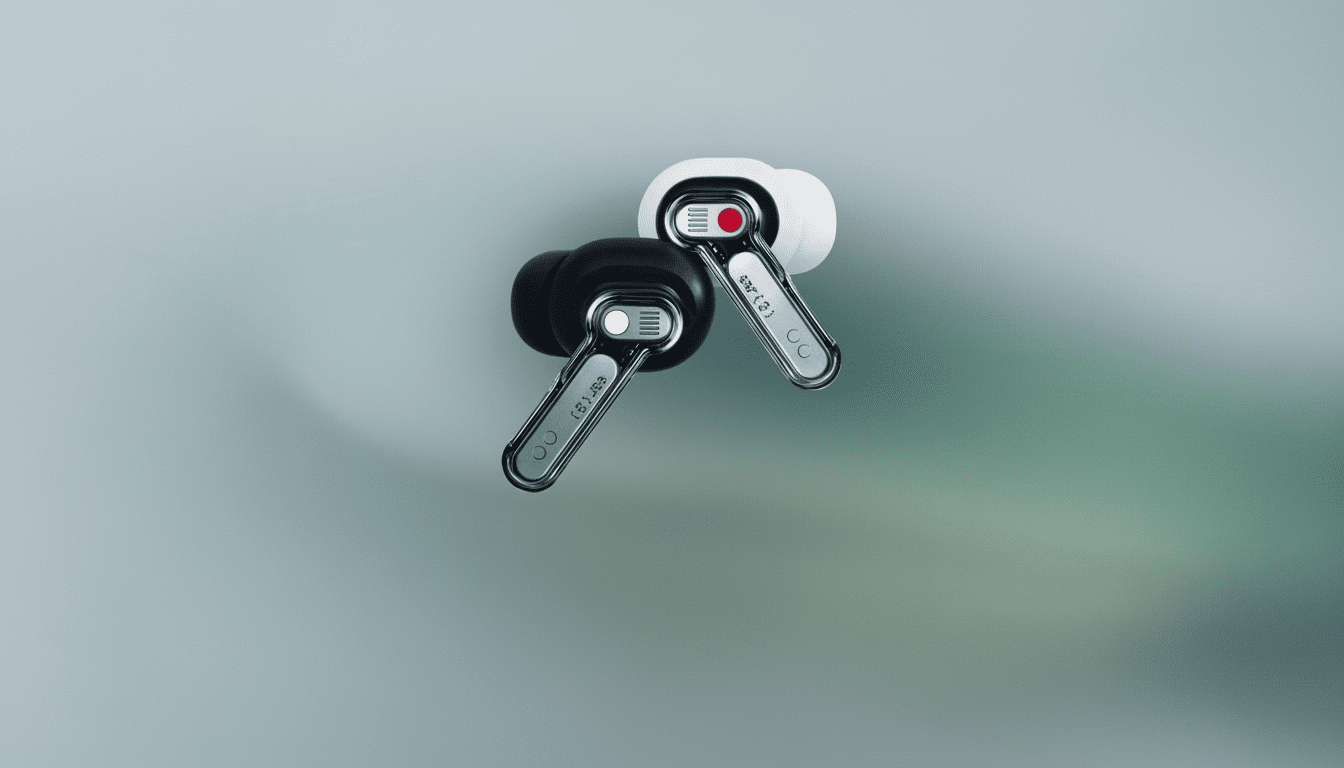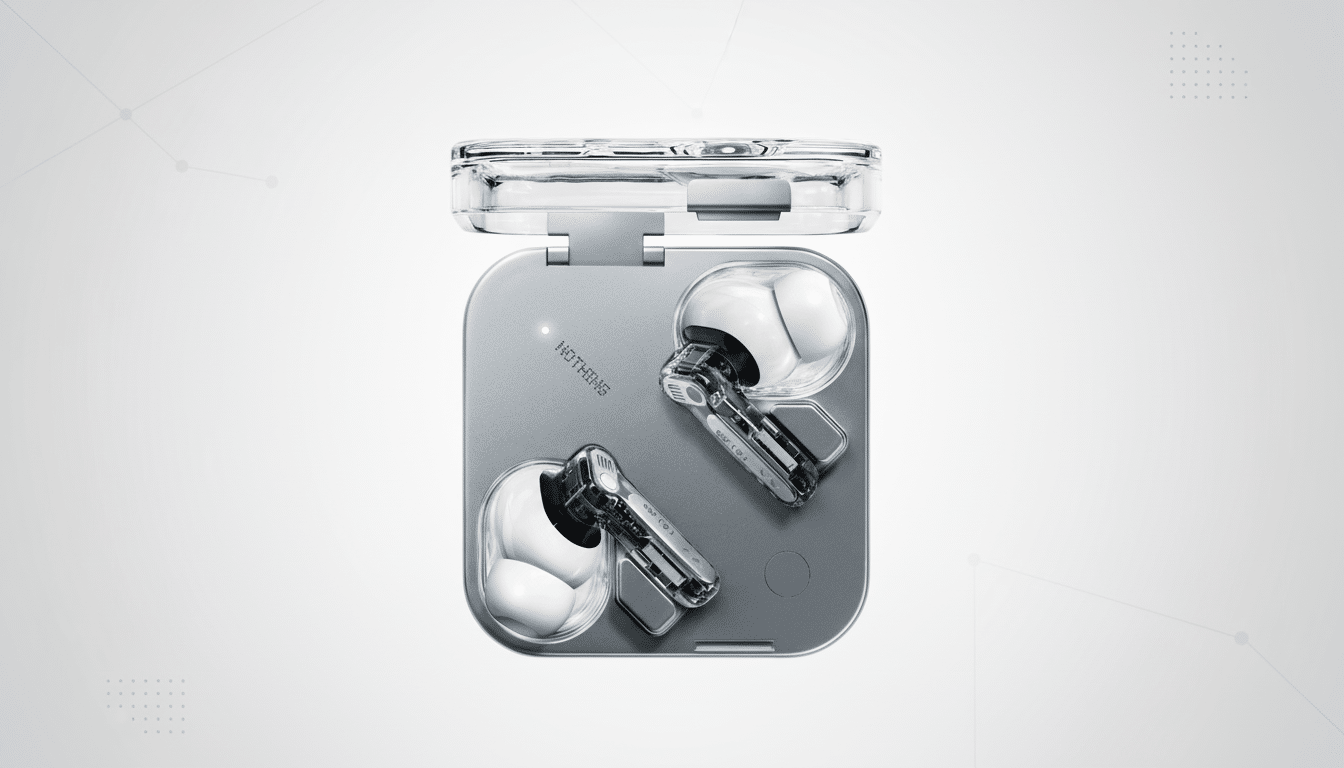Nothing has taken the covers off the Ear (3) with a familiar transparent look but with metal highlights, and a charging case that does more than just charge. The biggest feature is a case-mounted microphone (hence the regrettably branded “Super Mic”), and with it, a dedicated “Talk” button — a somewhat offbeat move that takes the earbuds from your ears to the table.
A familiar design with some edge
The Ear (3) carries through with the brand’s transparent design cues, but this time introducing a number of visible metal parts for increased strength and premium feel. Nothing also claims that it re-engineered the metal antenna to work in a slimmer profile while not compromising on signal performance.

Transparent construction is notoriously difficult in consumer audio products, because it provides fewer places to hide structural parts. The switch to metal indicates a move toward durability and greater tolerance to the rigors of daily wear, something that wearers of ultra-compact earbuds cry out for.
A charging case with something to say
The design of the case remain much the same as previous generation, it does however feature a shell that is constructed out of 100% anodized recycled aluminium. That is in keeping with a wider industry move toward less impactful materials; the International Aluminium Institute says that recycled aluminium can reduce energy use by up to 95 per cent versus primary production.
The true eyebrow-raiser is practical: a Super Mic and hardware Talk button. Earbud cases function as batteries and pairing docks generally, but sticking an always-available microphone and a tactile control on it hints that Nothing wants the case to be part of the communication experience, rather than just an accessory.
What the ‘Talk’ button might make possible
Nothing hasn’t shared the feature set yet, but the hardware suggests some sensible use cases for the buds. A single-press talk/mute toggle for calls would mimic enterprise headsets, which provide physical buttons with objects to fumble around with in meetings and recordings.
Another is a tabletop “conference” mode, in which the case’s mic listens to voices around the room while earbuds serve as speakers. That would be a world first in the true wireless segment, where most manufacturers are all about in-ear microphones and beamforming.
It could also serve as an all-purpose trigger for voice agents, turning the accessory into sort of a universal push-to-talk button for your walkie-talkie-like apps or standing in as as a shortcut that pairs your devices and immediately enables quick sharing across multiple gadgets. Having a dedicated mic in the case lends Nothing unusual elasticity to play with software post-launch.
Why this is important for high-end earbuds
With premium true wireless the differences have been refined down to ANC quality, quality of supported codec, battery life and comfort. Indeed, analysts at Counterpoint Research and Canalys have pointed to call quality as a key purchase driver when it comes to rising numbers of hybrid-work workers and on-the-go creators.

Competitors have iterated on that idea with more microphones in the earbuds themselves, or included case speakers for find-my features. A case microphone is unique: My guess is perhaps it handles the moments when you set buds down but still want to talk, or those times when a tabletop lapel far beats in-ear mics for quite a few people.
If the software is there for If Nothing, the Talk button could be one of those small, habit-forming features — press-to-mute on conferencing headsets, say — that people just don’t want to lose once they have it.
Performance cues from design tweaks
The reworking of the antenna and the addition of metal elements isn’t only about looks. In such situations, RF engineers often resort to attaching metal structures to antennas in order to enhance performance and maintain stability of the required signal, particularly in small form-factor devices where grip or body absorption can negatively impact gain. A more slender stem and a tuneable antenna may lead to less dropouts and stronger multipoint connections.
Nothing also highlights the aluminium case as being durable and sustainable. Anodizing provides scratch resistance and durability while still looking great, a consideration that should factor in for something that’s going to see most of its life placed in pockets and bags.
What we still don’t know
Important details are still missing: driver configuration, depth of active noise cancellation, supported codecs such as LDAC or LHDC, battery life with and without noise canceling engaged, water resistance ratings and wireless charging speeds. Pricing, regional availability and so forth also haven’t been confirmed.
Especially for reference, the last generation featured personalized ANC, multipoint connectivity and hi-res certification—things that help set the bar for where Ear (3) should land. This one, however — given the talk button and pocket mic in the case — seems to bring a communication feature orientated headline upgrade rather than an acoustic one.
Bottom line
Nothing is reimagining a part of the earbuds feel that many other brands leave out by making the case an active player with a mic and Talk button. If they pair that hardware with thoughtful software, Ear (3) could distinguish itself in a crowded field not only by how it looks but also by how it allows people to, well, talk.

